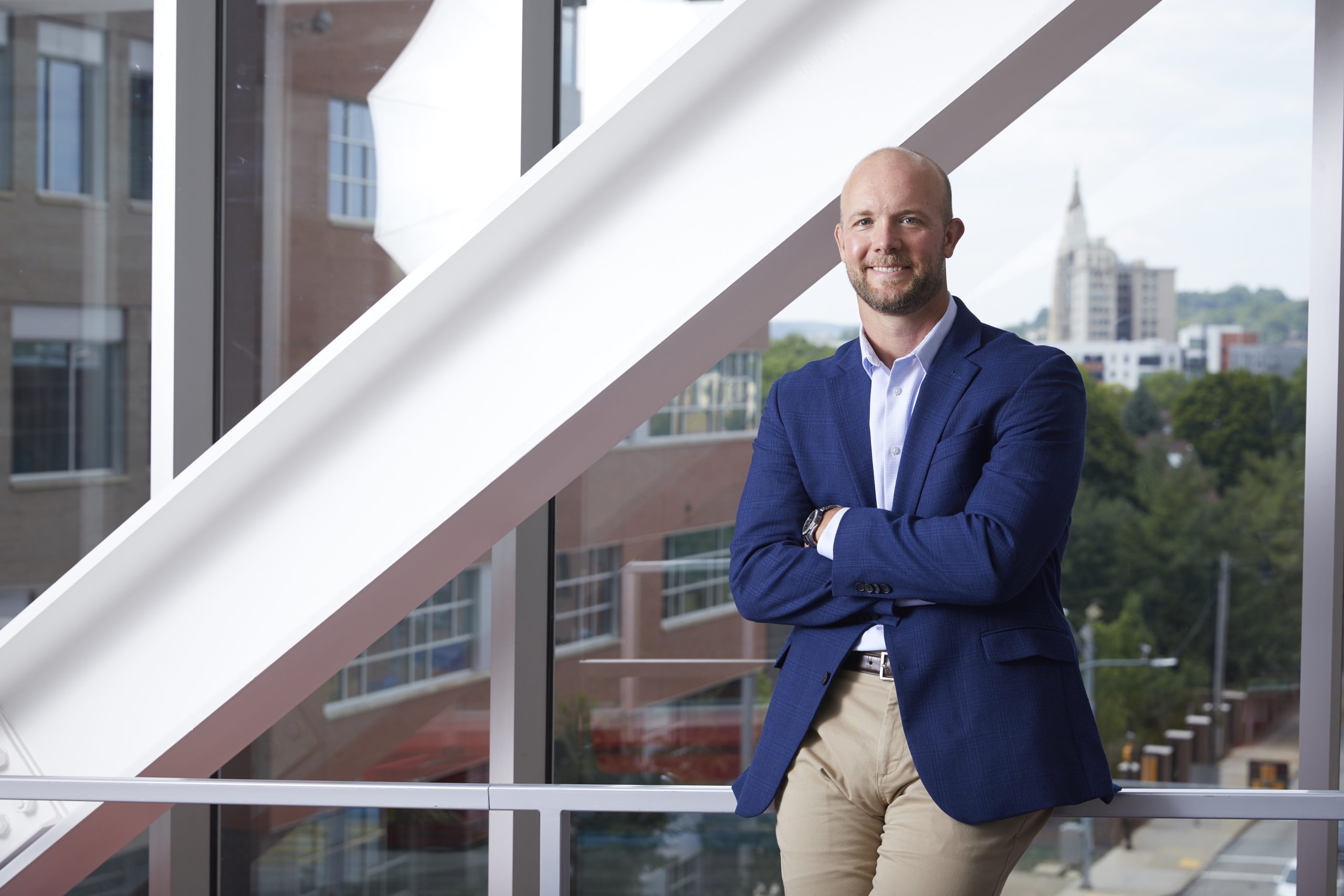Nov 4, 2021
Meet the Executive: Matthias J. Kleinz, DVM, PhD, Senior Vice President, Translational Sciences

Matthias J. Kleinz, DVM, PhD, joined UPMC Enterprises in July 2017 at the formation of the Translational Sciences focus area, and was recently promoted to lead the team as Senior Vice President, Translational Sciences.
Over the past four years, Dr. Kleinz has been closely involved with the Translational Sciences team’s work with the University of Pittsburgh to create companies based on promising discoveries at Pitt. He serves on the boards of directors for three of those portfolio companies, Novasenta, Cerevance, and Generian. He also has been integral to the team’s expanded focus on investments in life sciences startups that complement the work with Pitt.
Prior to joining Enterprises, Dr. Kleinz worked for LEK Consulting, where he advised clients on business opportunities in the life sciences space. He earned a PhD in Pharmacology from University of Cambridge and a Doctor of Veterinary Medicine degree from Justus Liebig University Giessen in Germany.
We talked with Dr. Kleinz to learn more about his background, what brought him to UPMC Enterprises, and his goals for the Translational Sciences focus area.
You have a varied background. Walk me through your career evolution – what ties these threads together?
The one common thread in my career, from my education to my work in consulting to now at UPMC Enterprises, is I have a passion for science, but I’m focused on making sure the science has an impact on patients.
I enjoyed everything I learned pursuing degrees in pharmacology and veterinary medicine, and I saw firsthand the importance of science and the practice of medicine. Yet I felt like I could do more with my scientific training. When I had an opportunity to apply my scientific background and be exposed to the business of science at LEK, that’s when I felt like I was really in the right place.
What felt right about it was getting close to new startups in the life sciences and being able to help them make a big impact on the industry and, ultimately, patients. I had the amazing opportunity at LEK to work with investigators at University of Pennsylvania and Children’s Hospital of Philadelphia to incubate the business idea that became Spark Therapeutics, which went on to develop the first FDA-approved gene therapy in the United States.
Seeing that path from start to finish, helping investigators figure out where to focus their efforts, working with investors – that was an amazing opportunity. I want us to create our own sparks here in Pittsburgh around promising technologies and companies that have the potential to truly change medicine. That’s what I’ve always cared about the most.
What attracted you to UPMC Enterprises?
There’s both a personal and professional element to how I came to Enterprises. While I was at LEK, I had worked on a one-off project for Enterprises that had a scientific component and was a bit unusual for that time. So I was familiar with the organization. Then my wife, who is originally from Pittsburgh, took a job here as a surgeon. But Enterprises hadn’t yet formed the Translational Sciences team. Two years later, Jeanne Cunicelli was hired to form the team and she called me.
Then professionally, there are ultimately only a few places like this in the world where you have a really big health care system that has so much information about what’s happening in medicine and science. Combine that with a willingness to take risks, push innovation, and put real support and resources behind those efforts — we have an amazing opportunity to push the industry forward and have a huge impact on patient care.
That’s what gets me excited to come to work every day. We’re in an extremely unique place to define what this model can do now and in the future.
What are your goals as the leader of the Translational Sciences team at Enterprises?
One key goal, especially coming out of pandemic, is to continue the successful expansion of our team with industry-leading talent. We’re back out there recruiting and we’ve made some really good additions to the team that I’m very excited about.
And also, now that we’re several years into our Translational Sciences effort, I want us to build on the vote of confidence we’ve received from the UPMC leadership and continue to drive real innovation in health care. If we succeed against that basic goal of building transformational technologies and therapies, we’ll impact patient care and put Pittsburgh on the map as a hub for life sciences innovation. We’re on a really good path that leads to our innovations paying significant financial and reputational dividends for both UPMC and Pittsburgh.
How is the Translational Sciences team progressing with its commitments to company formation and investments in life sciences companies?
We’re approaching the halfway point in this effort and we’re in a good place. We have a tremendous team in place that can do really good work around company formation, incubation, and investment. We’ve been able to put that talent to good use and now have a portfolio of five companies that we formed here in Pittsburgh from ground up with our academic partner University of Pittsburgh. Those companies are BlueSphere Bio, Generian, Abound Bio, Novasenta, and the UPMC Genome Center.
It’s very satisfying to see that our relationship with Pitt has gotten to the point now that we can say there won’t be viable ideas for innovation coming out of the university that go unused. It may not always be only UPMC Enterprises commercializing the ideas, but we now have the processes in place to make sure we’re on top of anything that can transform health care.
And then, in addition to the strong relationship we’ve created with Pitt, we’re also fostering relationships outside of Pittsburgh that complement and strengthen what we’re building here. We’ve invested in six external portfolio companies — Werewolf Therapeutics, Butterfly Network, Cerevance, Code Biotherapeutics, Ring Therapeutics, and SparingVision. And we’re building relationships with other investors and industry partners to help us take even greater advantage of the tremendous assets of UPMC.
We are looking at many exciting opportunities and I’m sure we’ll be making many more announcements in the coming months and years.
What’s the best piece of career or leadership advice you would give?
The one thing that I truly believe in is you should follow your instinct, follow your gut. If something gets you excited, go for it. If you’re smart and ambitious, you’ll figure it out. You need passion – that’s my advice. And from leadership perspective I ask myself, how do I build a team that has my back? To achieve that you have to be able to lead from the front and get in the trenches. That’s always served me well over the years and I want to continue to remind myself and my team that I’ve been there, and I’m always willing to roll up my sleeves.
If you were stranded on a deserted island, what’s one item you’d want to have with you?
Definitely not a cell phone. I’d probably take any good book. The one thing that’s always fallen away with my career is, I really like to read, but I read way too much for work and not enough for pleasure.

